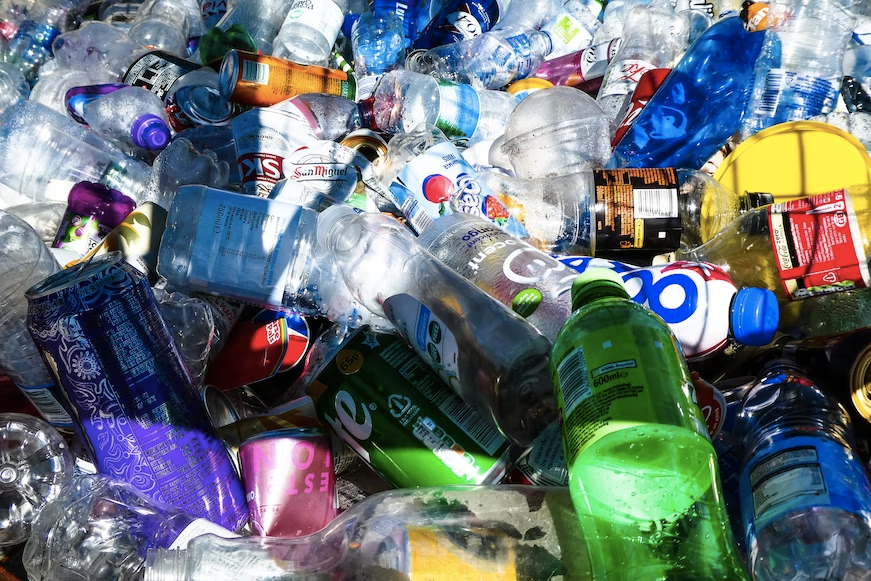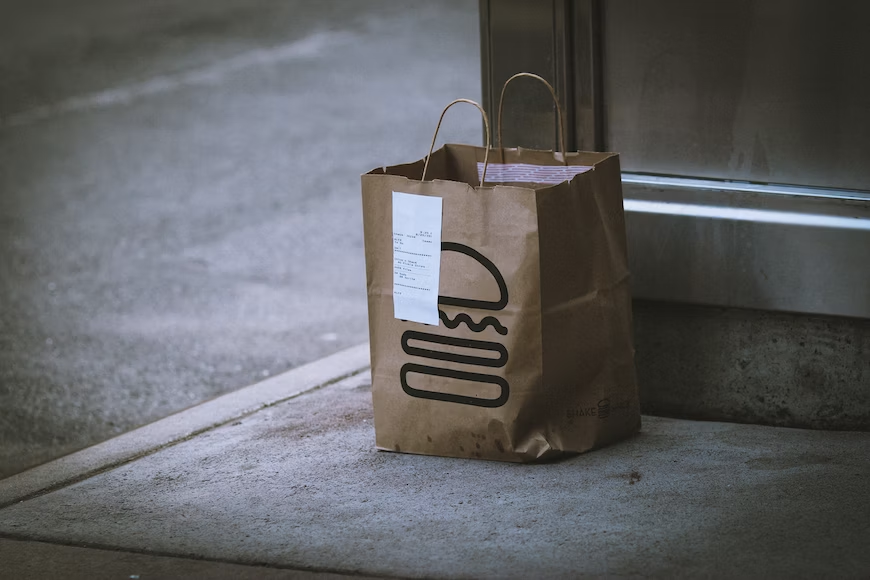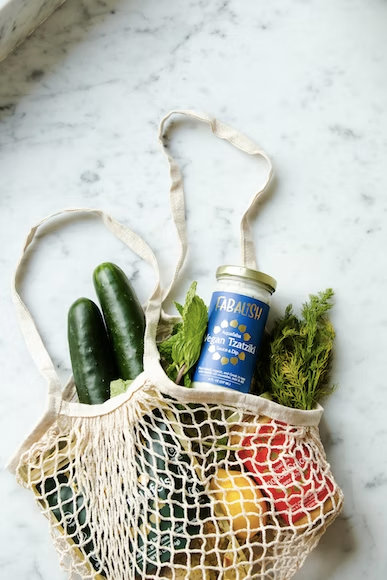We all make choices every day that have effects both big and small. Some things affect us personally, while other things affect the world around us. And many of these everyday choices affect both. Living sustainably means that you are trying to reduce your negative impact on the world around you, and doing so can actually help you to save money. Making smart and sustainable choices can help you and the world around you, so it is oftentimes a win win. So how can you make choices to live more sustainably in this day and age?

It’s no secret that plastic is terrible for our environment. It’s inability to break down means that it will stick around long after we are gone. Plastic makes up 80% of ocean debris with billions of pounds of plastic that can be found on ocean surfaces. And the fact that most disposable products are made of plastic means that this problem isn’t going away any time soon.
This problem is obviously so huge that it is more than one person can fix. And while that is true, every step that we can take will help in a small way and we owe it to our planet to make the effort. Limiting your use of plastic can also result in savings for you. To limit your use of plastic, consider taking the following steps:
Switch from disposable water bottles to a reusable water bottle. Getting a filter for your tap may be necessary but you will save a lot of money and a lot of wasted plastic.
Use reusable totes when grocery shopping. Plastic grocery bags are incredibly wasteful so using a reusable bag is a great way to help the environment. If plastic bags are a must for you, be sure to recycle them at the grocery store (rather than in your recycling bin at home where they are usually not accepted).
Avoid shopping online when possible. Many online stores use loads of plastic when shipping, from bubble wrap to simply wrapping the products multiple times in plastic. Shopping local instead will help keep your local economy buzzing and cut down on plastic waste.
Shopping in general has a lot of environmental implications. Shopping for the latest fashion that is barely worn and then tossed aside creates a lot of waste. The packaging from frequent shopping also means that more waste ends up in landfills. Think twice before heading to the store and ask yourself if this purchase is something you really need. This will also result in big savings, and who couldn’t use some extra cash every month. If you really want to refresh your wardrobe or home, think about buying second hand. You can find a lot of nice and barely used clothes, furniture and home goods by just looking around and doing some research.
If you live in a city, you most likely rely on public transportation. But if you live in the suburbs or in a rural area, a car is a necessity. But that doesn’t mean we are doomed to be wasteful. Consolidating our trips as much as possible can help us save on gas usage (which will also help us save money) and lower our emissions. If you are able to carpool with friends or family who live locally that can also help lessen our carbon footprint. A win for the planet and a win for our wallets.

Take out is easier, we get it. But eating at home is better for your health, better for the environment, and better for your wallet. When you order take out there are disposable containers and packaging that is unavoidable. There is also the trip to make the delivery which adds to emissions and gas usage.
When you order food out you also have much less control of what goes into what you are eating. By cooking at home you can control the amount of oil and salt that is in your food. You can choose what vegetables are in season, and if you choose to shop from local farms you are reducing the amount of travel that is associated with importing produce.
Cooking at home is just plain cheaper than ordering take out too. By shopping grocery sales and using coupons you can save tons of money every week. While it does require more planning and more time (which makes it hard, we know) there are plenty of resources online that can help you prepare and organize some quick and easy weeknight meals.
Single use items are everywhere in modern life. But finding alternatives to these conveniences help our environment and–you guessed it–save you money at the same time. Using reusable containers instead of tin foil, plastic baggies, and plastic wrap is much more environmentally friendly and much more cost effective. Here are a few other areas where you can avoid single use:
Use silicone baking mats instead of parchment.
Bring your used candles to a local candle maker to have them refilled.
Use kitchen towels as much as possible instead of paper towels.
Use cloth napkins instead of paper napkins.
Avoid disposable cutlery and plates as much as possible.
Use cloth diapers and wipes if you have a little one. Cloth diapers have come a long way and modern ones are much easier to use and more effective than the ones from thirty years ago.
If you must use some single use items, try to repurpose them if possible. Wash your plastic cutlery, use the cardboard paper towel rolls for crafts, be sure to recycle anything that you can.

Paying attention to labels and certifications when you are looking to purchase new products. There are several accreditations and programs that companies can apply to that will certify their products as eco-friendly or fair trade, such as Fairtrade Certified or Non-GMO Project Verified. If a certification or award sounds unfamiliar, do some research to find out more. Not all of these certifications are equal, and some are even made up by the company itself. But seeking out products that are taking steps to be eco friendly means you are using your money responsibly to support companies that believe in sustainability.
Factory farmed animals create one of the biggest roadblocks for sustainability. The carbon footprint associated with this type of large scale breeding and slaughter is incredibly large. The amount of water and energy that is required for the production of meat is huge, and the industry has issues with the pollution of air, water, and soil. In fact our global food system is responsible for 25% of greenhouse gas emissions per year. Farming for beef in particular creates one of the largest carbon footprints.
Reducing the amount of meat we consume is the best way to combat this, although cutting out meat entirely from your diet may be less than ideal for you. But if you can reduce the amount of meat you eat and replace it with more sustainably sourced options (like certain types of fish) you can help reduce the footprint of this enormous industry.
The amount of food that is wasted in the United States is truly mind blowing–nearly 40% of all edible food is thrown away. Whether it wastes away in our fridge or is just discarded because we don’t want or need it anymore, food waste is everywhere we look. There is an incredible amount of waste at grocery stores in particular who are forced to toss expired foods (even if they are still good) and get rid of the produce that no one buys. By trying to reduce your food waste you can save money while also helping the environment. You can do so by planning your meals out ahead of time, getting creative with leftovers AND scrap pieces, and purchasing items that are near to their expiration date (if you plan to use them right away).
When the time comes to buy investment items, choose them wisely. If you need a new car, consider an electric or hybrid car. If you are looking for large appliances such as a refrigerator or dryer, try to get an appliance that has an Energy Star label. These appliances are more efficient and therefore will save energy (and save you money).

The issues that our world is facing may feel overwhelming, but it’s important to not settle into the mentality of “but what can I do, I’m just one person”. The fact is that if we all make small changes in our lives and throughout our days, we will have a very big impact on our world. Together we can commit to reduce emissions, waste less, and live more sustainable lives.
Making sustainable choices can help the planet while also saving you money. If you are interested in saving even more money, think about refinancing your car loan with Auto Approve! Don’t wait, get started today!